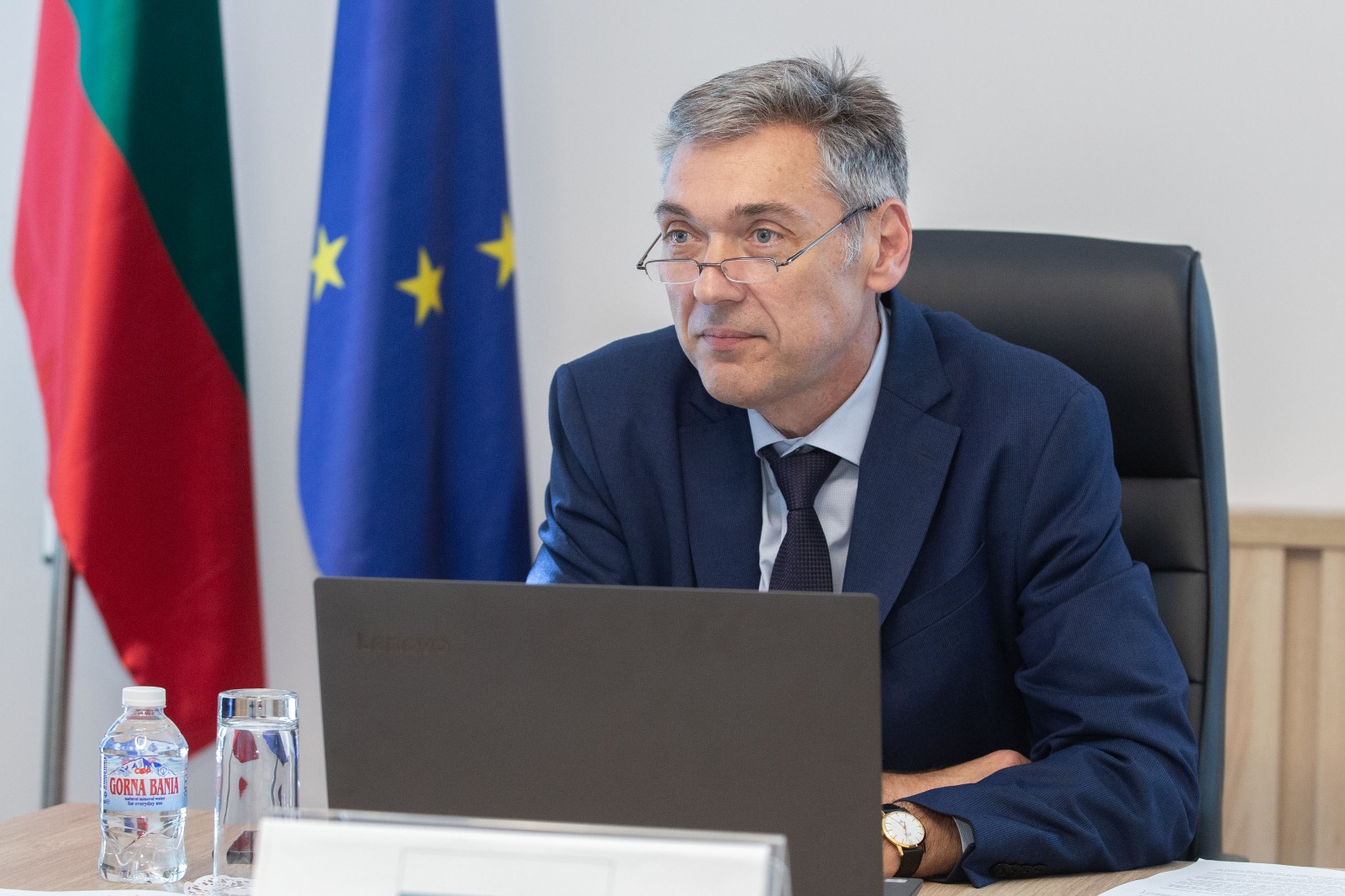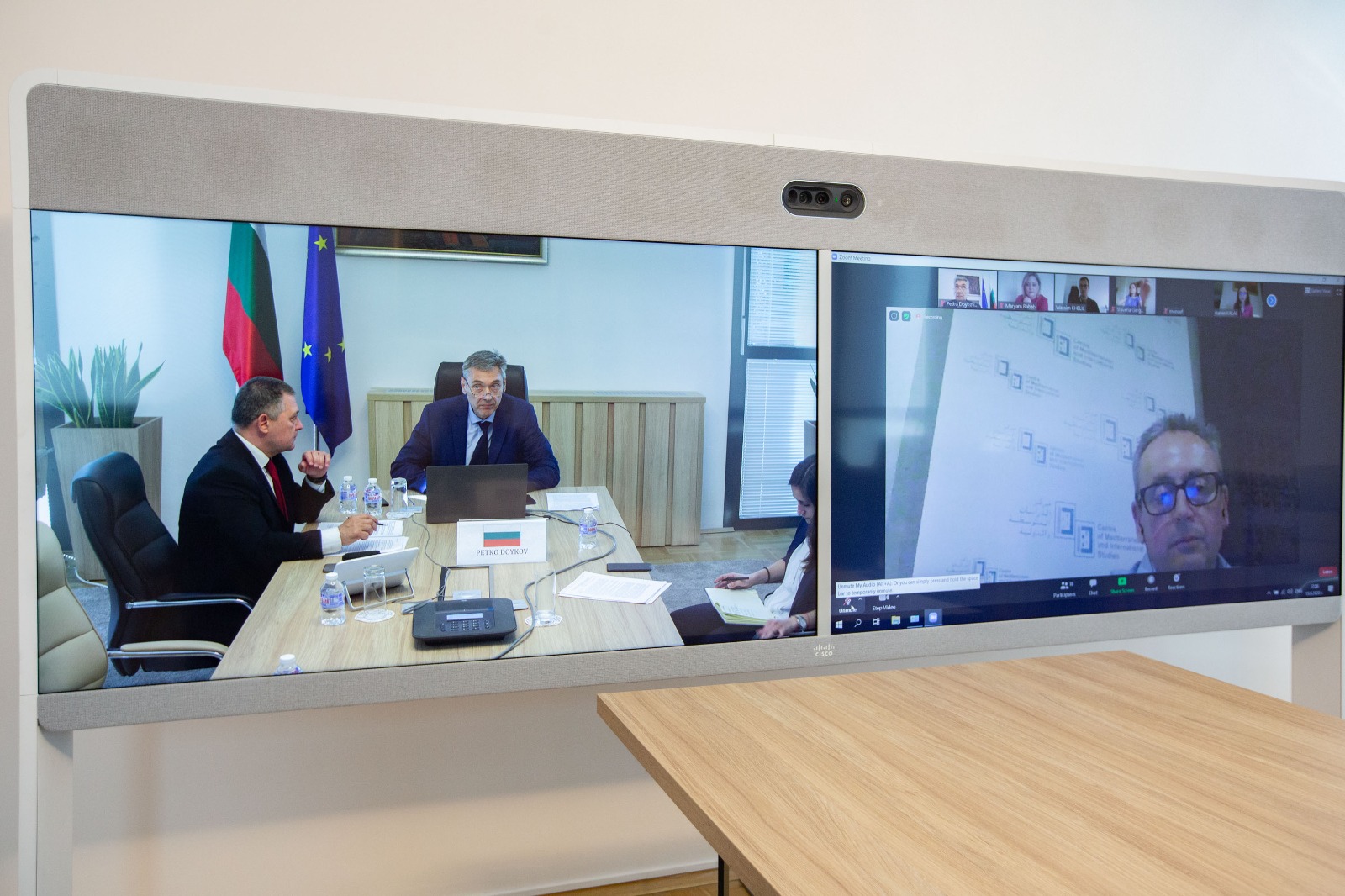Deputy Minister Doykov Participates in Debate with Students of Tunisian School of Politics
19 June 2020 News
Deputy Minister of Foreign Affairs Petko Doykov took part in a debate by video conference with students at the Tunisian School of Politics on the topic of “EU Policy and Cooperation with the Southern Mediterranean in the Context of COVID-19.” This event was organized by the Centre for Mediterranean and International Studies with the support of the Bulgarian Embassy and featured the participation of more than 50 students.
“Relations between Bulgaria and Tunisia are excellent and I hope that we will be able to further develop the cooperation between our two countries in all spheres of mutual interest once the coronavirus crisis is over,” Deputy Minister Doykov said.
Petko Doykov presented the assistance which the EU provides to the countries of the Southern Neighborhood to the students. “The initiative for a global EU response to COVID-19 (Team Europe) is an opportunity to provide a timely and effective response to the most pressing needs of the EU’s partners in North Africa,” Doykov said, asserting Bulgaria’s full support for the proactive role of the EU.
Tunisia, Algeria, Egypt, Libya and Morocco are beneficiaries of the EU assistance, as are the other countries that form part of the Southern Neighborhood. This assistance focuses on three strands: meeting countries’ immediate needs, strengthening the health sector and economic recovery. This assistance is valued at more than EUR 20 billion.
Deputy Minister Petko Doykov also discussed topics such as the relaxing of measures in Europe, tourism, scientific cooperation and the impact of COVID-19 on migration with the students.
In his closing remarks, Doykov congratulated the Tunisian Republic on no longer being on the list of third countries demonstrating deficiencies in anti-money laundering measures.
The Tunisian School of Politics was established in 2012 with the support of the Ministry of Foreign Affairs following the model of the Bulgarian School of Politics. It is located in a building that owned by the Bulgarian state.

